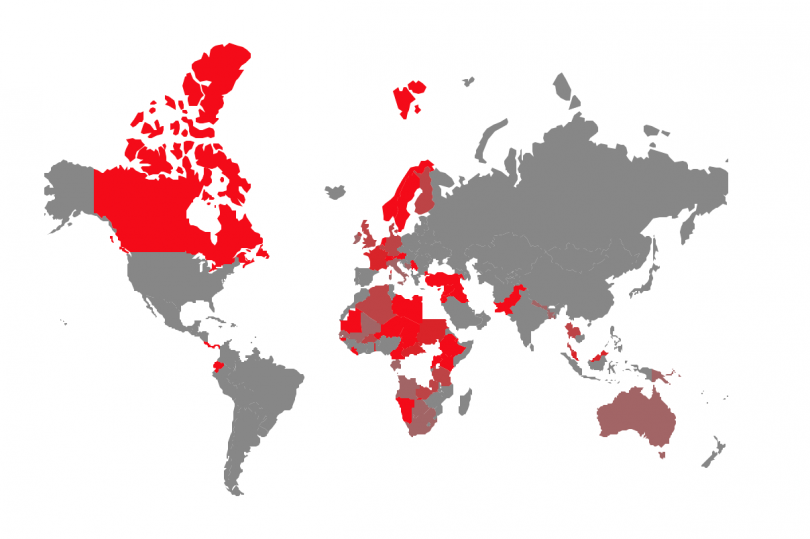World’s poorest nations bear the brunt of Refugee Crisis as OECD nations falter
The burden for caring for the worst refugee crisis since the end of World War Two has fallen on poor countries, data from the World Bank shows.
Only four countries from the high income OECD area, plus the Euro Zone, sit in the top 20 countries for refugee intake in 2013.
Despite this, many European countries are sealing off their borders. This was seen this week as Hungary used tear gas and water cannons to stop refugees from crossing the border while they complete their 173km long fence to keep migrants out. The UN have repeatedly said “It is not a crime to cross a border to seek asylum”.
Jordan took in nearly three million refugees in as the Middle East spiralled out of control – due to the Syrian conflict and the rise of the Islamic State, or Da’esh.
Palestine took in nearly two million refugees, while Pakistan have taken many refugees from Afghanistan, hosting 1.6 million.
Turkey was the highest OECD country in 2013, taking just over 600,000 refugees, while the Euro area was accepted just under 700,000 as a whole.
The crisis in the Middle East is straining nations like Lebanon, who are accepting 1,155 refugees per 10,000 permanent residents. Jordan is taking nearly 5,000 refugees per resident.
Meanwhile, Australia took seventeen refugees per 10,000, and the United States took only eight. However, Australia last week said it would take a further 12,000 refugees from the Middle East, while the UK have said they will take a further 20,000.
The crisis has worsened since 2013, with the United Nations High Commission for Refugees (UNHCR) estimating a further 14 million people had been displaced in the 12 months following the release of these statistics.
Data from the UN shows Europe is one of the most immigrant-heavy places in the world, with most countries having close to or over 10% of their permanent population made up of migrants.
This graph does necessarily show who settles refugees, however. In the case of many Middle Eastern states like Saudi Arabia or Gulf States, who have up to 80% of their population as immigrant workers, held in conditions compared to slavery.
Saudi Arabia settled on 600 refugees in 2013, the UN found, despite bordering both Syria and Iraq.




